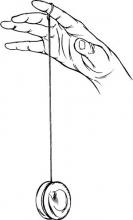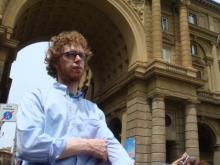A Baker-Nord Digital Humanities Event
There are significant differences between the kind of support that humanists typically provide for their arguments, on the one hand, and the kind of support scientists provide for their arguments, on the other. The standard mode of support in the humanities makes it nearly impossible to imagine circumstances in which the retraction of a publication was warranted, whereas this is routine in science.
The possibility of retraction is not peculiar to science. It is a feature of any culture of inquiry that prioritizes the prevention of error propagation. Humanists owe some sort of explanation for why we are apparently unconcerned with error propagation. It must be either that (1) we don’t care about the effect of the errors that we make; (2) the errors that we make have no effect; or (3) we don’t make errors. None of these seems plausible, and whatever the real explanation is may reveal a deep problem in the humanities.
I will argue that the fundamental problem, in whatever guise, is that humanists are not used to thinking about the questions we address as having right or wrong answers. This feature of humanities culture is a major obstacle to us entering the age of computer-assisted inquiry, because that age has treated computers as data analyzers, capable of detecting broad trends that are more real than anything that could be uncovered by a single human mind.
A recent BNC talk queried, “What Can We Learn About Language from Reading Millions of Books?” One general answer to this question is that we can learn a lot about highly circumscribed questions, the sort that are pursued in the natural sciences. Humanists generally do not like to ask highly circumscribed questions. They like to ask “the big questions.” But we cannot answer the big questions by reading millions of books, because (i) we cannot read millions of books, and (ii) computers can’t answer the big questions. Part of our coming to grips with the digital age lies in making a choice between (A) providing well-supported, error-prone answers to highly circumscribed questions, and (B) providing poorly-supported, error-immunized answers to big questions. If we choose (B), we need a much better, clearer account of what qualifies as an “answer.”
An informal lunch will be provided.
Free and open to the public.
About the speaker
Chris Haufe
Chris Haufe, Assistant Professor in Philosophy, works on problems in the history and philosophy of science, particularly biology. His research focuses on conceptions of natural law in biological science from the late 18th century up to the present, the epistemology of subjunctive propositions, and the way in which philosophical presuppositions about science affect scientific funding.



